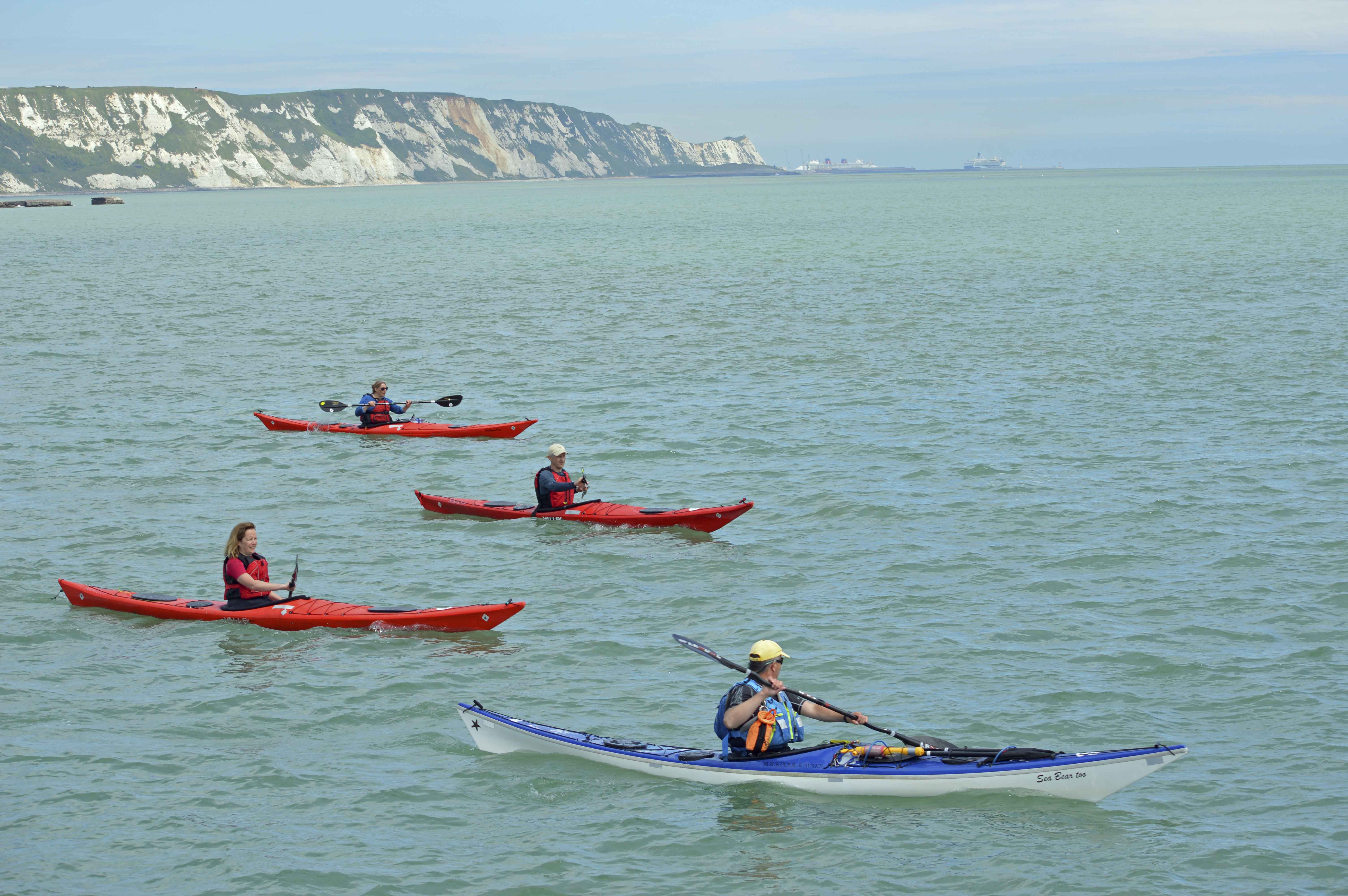
In the last weekend of June, I road-tripped as a group of six newish CKC members to Folkestone for a two-day British Canoeing (BC) Explore Award training course led by Rob Davies from South East Kayaking.
The Explore Award centres around the skills needed to control the kayak and stay safe on the water, usually in a sheltered environment. This course was particularly appealing because it gave an opportunity to develop those fundamental skills in sea conditions.
Club members Jo, Marcel, Mary, Matt, Mike, and I (Rosie) were at a similar level of proficiency, with a recent BC Discover award under our belts. For most of us it was our first time paddling on the sea, so it was reassuring to get a gentle introduction to the waves under expert instruction.
It was especially enjoyable to complete our Explore training against an impressive Kentish clifftop backdrop. I was grateful for the late June warmth and the fabulously turquoise water that I hadn’t expected from a busy port town.
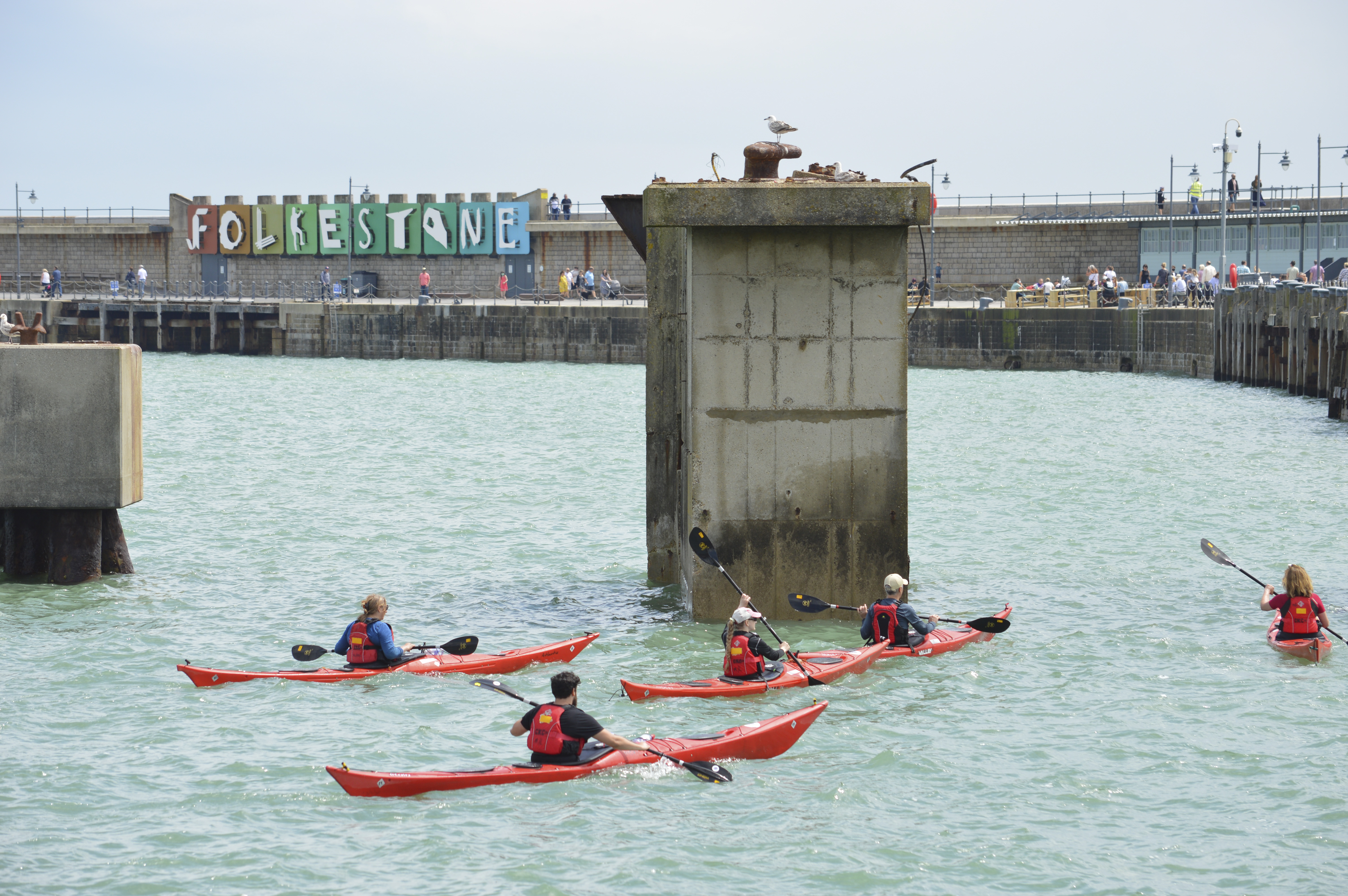
We learned how to control our kayaks in the wind when making tight turns around concrete structures left over from when Folkestone was a working ferry port. We attracted quite an audience from tourists enjoying street food on the pier while we paddled figure of 8s in procession around these.
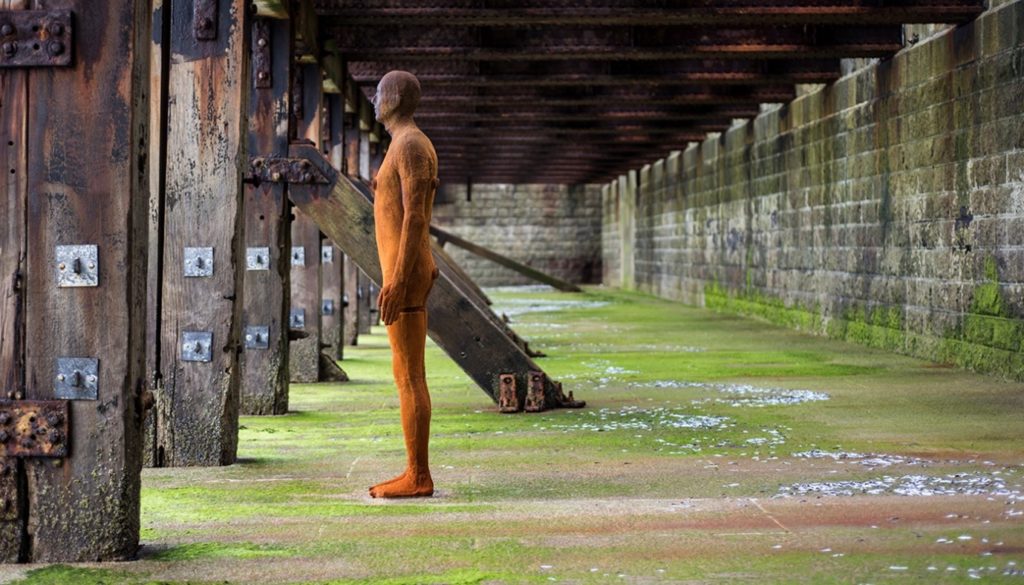
Rob gave us some cool tour guide intel in the downtime between activities. He pointed out Antony Gormley’s cast iron sculpture ‘Another Time XVIII’, a human figure which can be seen standing in the pier’s old landing stage at low tide. At high tide the statue is completely submerged. We were alarmed to see its rusty head and shoulders emerging eerily from the water next to us!
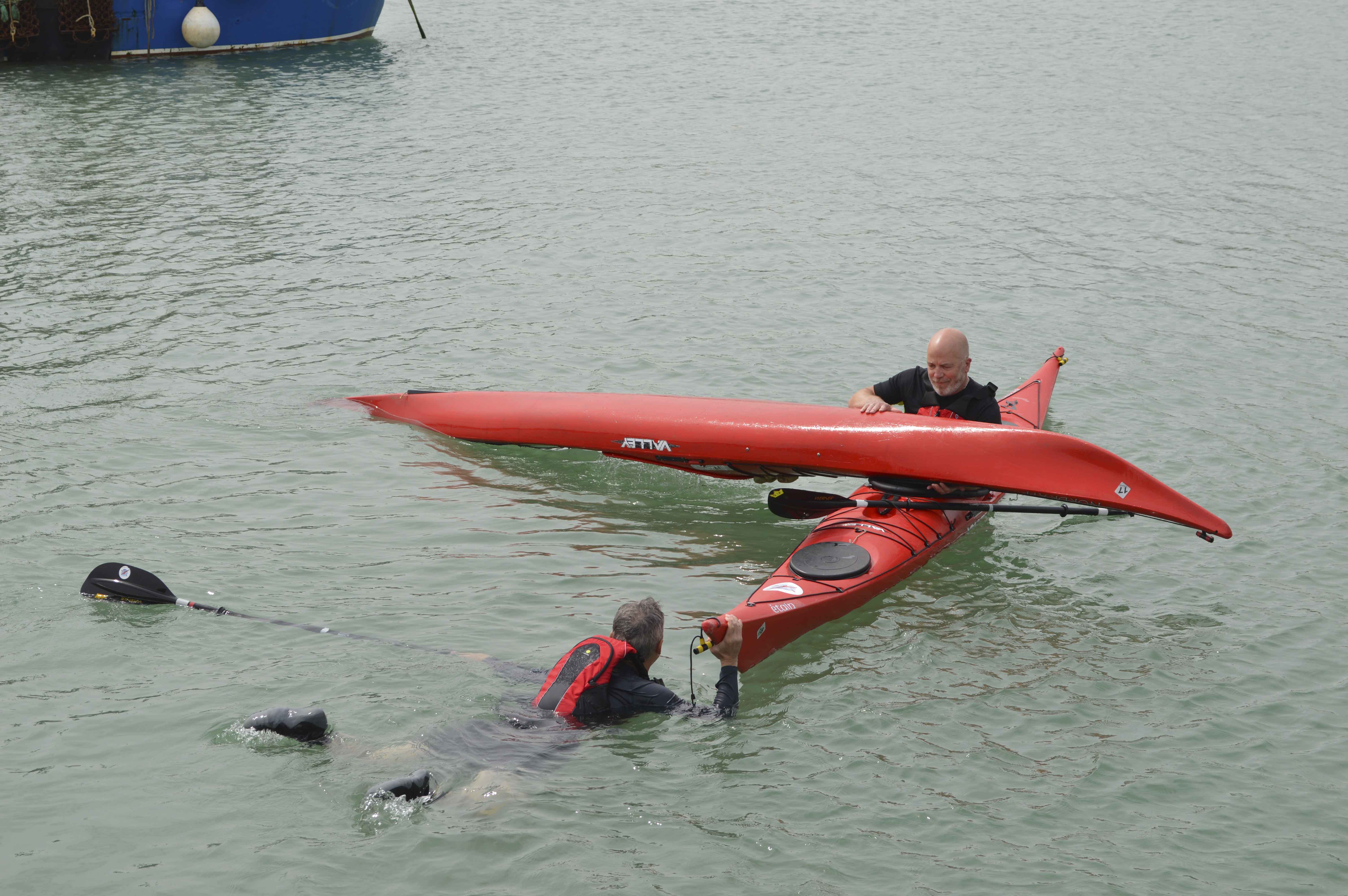
On each of the two training days, we finished off the afternoon with capsize and rescue drills. The sea was quite choppy so for this activity so we retreated into the calmer environment of Folkestone harbour, close to a small beach in the event of swimming to shore.
Apart from a few boats, groups of paddleboarders were a hazard, which we successfully manoeuvred around. Coming back into the harbour from a stint out on the open water, one paddleboarder told us we’d just missed a seal in the harbour.
We partnered up for assisted deep water rescues while the seal, presumably, watched and laughed.
Some of us were excited about jumping into the water, and others (well, mainly me!) nervous about capsizing, but the fear quickly dissipated after the first practice once remembering how easily spray decks pop off when you’re under. A pleasant surprise was that the water seemed clean and relatively warm.
Emptying a kayak in deep water takes some strength but is do-able for most paddlers with the right technique by positioning your boat perpendicular to the bow of the capsized boat and carefully pulling it up onto your deck. Top tip: while the kayak is upside down, locate the skeg at the stern to identify which way round it is.
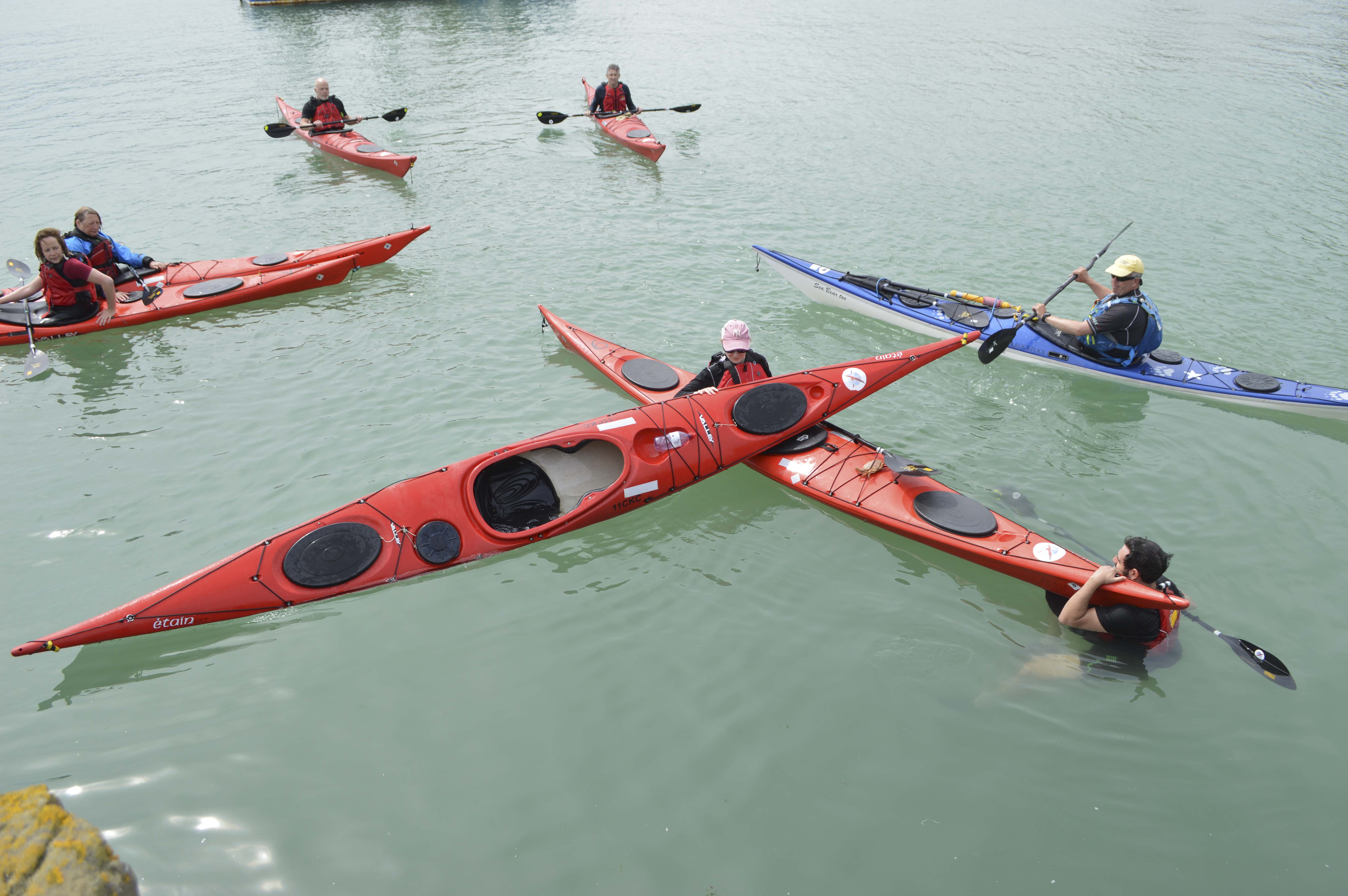
We worked on the art of re-entering the kayak with heel hook rescues. Top Tip #2: keep a low centre of gravity and take it slow to maintain your balance and avoid immediately going back in. This ended up being quite an amusing activity for us and no doubt the seal enjoyed watching it too.
Rob promised that practising heel hook rescues would leave us with almightily bruised thighs, although I can reveal that no bruises emerged for me afterwards. I didn’t ask the others!
I was very pleased to have helped Matt perfect his heel hook rescue. Once happily back in his cockpit and paddling onwards, Matt mused, ‘Wasn’t I wearing sunglasses?’, teaching us my final Top Tip: always stash your hat and glasses in a hatch before throwing yourself into a wet exit!!
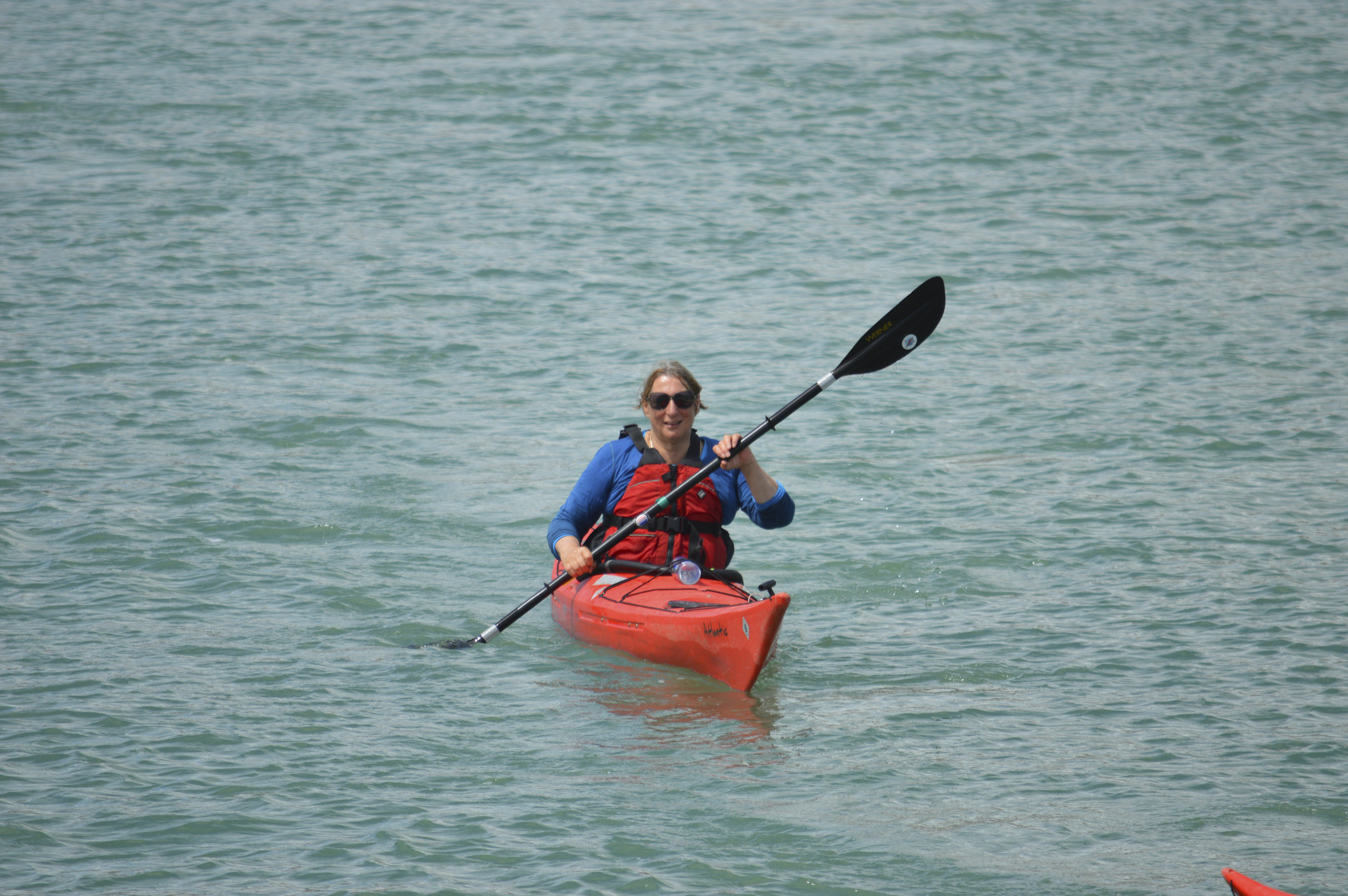
Rob assessed our capability as we went along. Although he assured us that he rarely prevents anyone from passing the Explore course, it does happen. Rob sometimes recommends people practice a bit more before having another go at the award. So, you’ll be interested to hear whether that applied to any of us…
Drumroll please!
We were all happy to have successfully graduated from the course. Next stop: CKC sea trips!
As this this was a club-only trip and we were all at a similar level, working towards the same goal – confidence and proficiency to join the club’s sea trips – it felt like we learned a lot more than on a mixed training course.
We bonded as a group through the shared experience, and through spending time with likeminded people who felt that capsizing and practising rescues was an enjoyable way to spend a Saturday afternoon.
It was a great experience too to help with organising the course, as it helped me gain an understanding of what goes into planning a trip. The logistics of kayak and equipment transportation proved most tricky. Without our superstar van driver/photographer/off-duty instructor, Will, we would have struggled with transporting the kayaks. Thank you Will!!
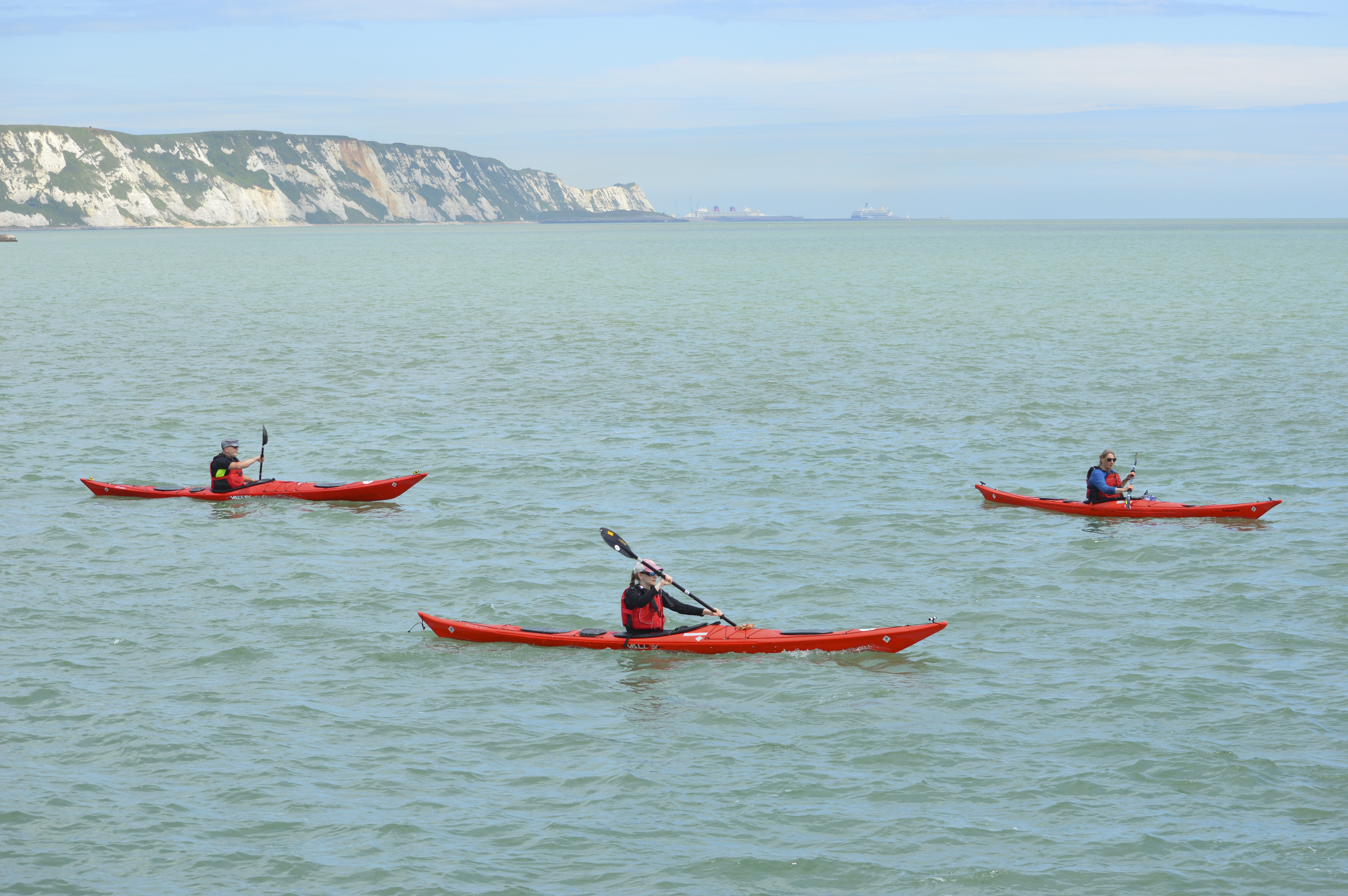
The next training course after the Explore Award is the Sea Kayak Award. We all felt that we would want to get at least six months of consolidating the weekend’s learning before seeking to level up. But then again, in six months it will be winter, when capsize and rescue drills sound less appealing than in the fabulous conditions we enjoyed at Folkestone…
To new members who have completed their Discover award, I thoroughly recommend taking the Explore course for fundamental skills development. I’d also recommend taking it on the coast if you get the chance, for the bonus of gaining confidence in sea conditions. Folkestone was particularly well suited as we got great experience of the waves but in comforting proximity of the sheltered harbour.
For an idea of the types of techniques and skills we learned, British Canoeing’s Explore award syllabus can be downloaded from their website.
Check out the training page on the CKC website to check for details of upcoming training courses. Feel free to let the club know if you’re ready to take your Explore award and interested in sea-based training, so we can gauge appetite for running more coastal courses in future.



Leave a Reply